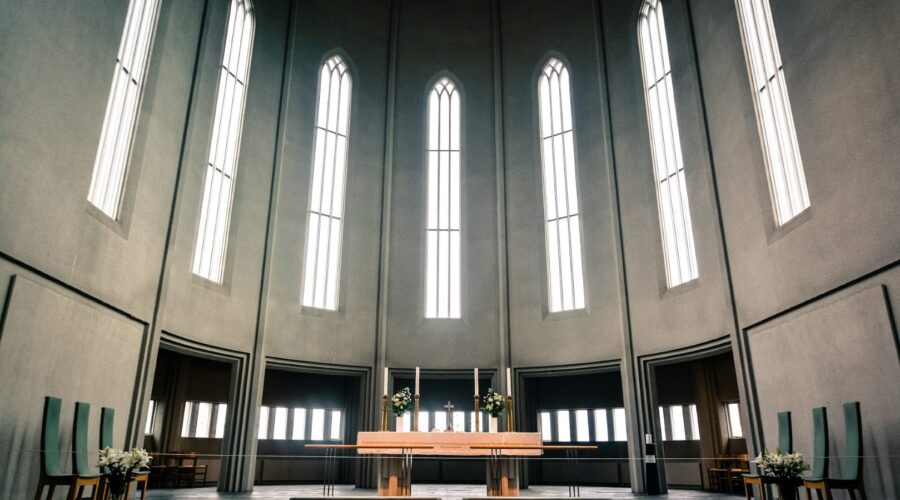Your cart is currently empty!
Presbyterian Church: A Comprehensive Guide for Understanding Its History, Beliefs, and Practices

Introduction
Presbyterianism is a Protestant Christian tradition that traces its roots back to the Reformation in the 16th century. It is characterized by its emphasis on representative government, its emphasis on the sovereignty of God, and its focus on the importance of education.
History of the Presbyterian Church
The Presbyterian Church was founded in Scotland in 1560 by John Knox, a prominent Protestant reformer. Knox had been influenced by the teachings of John Calvin, another prominent Protestant reformer, and the Presbyterian Church adopted many of Calvin’s beliefs.
- 1560: John Knox founds the Presbyterian Church in Scotland.
- 1643: The Westminster Assembly of Divines is held in London, England. The assembly produces the Westminster Confession of Faith, which becomes the doctrinal standard for many Presbyterian churches.
- 1706: The Act of Union is passed in Scotland, which unites the Presbyterian Church of Scotland with the Church of Scotland.
- 1789: The Presbyterian Church in the United States of America is founded.
- 1861-1865: The American Civil War divides the Presbyterian Church in the United States of America into two separate denominations: the Presbyterian Church in the United States of America (PCUSA) and the Presbyterian Church in the Confederate States of America (PCSA).
- 1983: The PCUSA and the PCSA reunite to form the Presbyterian Church (U.S.A.).
Beliefs of the Presbyterian Church
The Presbyterian Church holds to a number of core beliefs, including:
- The sovereignty of God: Presbyterians believe that God is sovereign over all things, and that he has created the world and everything in it for his own purposes.
- The authority of Scripture: Presbyterians believe that the Bible is the inspired word of God, and that it is the final authority for all matters of faith and practice.
- The priesthood of all believers: Presbyterians believe that all Christians are called to be priests before God, and that they have equal access to God through Jesus Christ.
- The importance of education: Presbyterians believe that education is essential for the growth of the Christian faith, and they have a long history of supporting educational institutions.
Practices of the Presbyterian Church
The Presbyterian Church has a number of distinctive practices, including:
- Representative government: Presbyterian churches are governed by representative assemblies, which are elected by the members of the congregation. These assemblies make decisions on behalf of the congregation, and they are responsible for overseeing the church’s finances, hiring staff, and setting policy.
- Liturgical worship: Presbyterian worship services are typically liturgical, which means that they follow a set order of worship. This order of worship includes readings from the Bible, prayers, and hymns.
- The sacraments: Presbyterians recognize two sacraments: baptism and the Lord’s Supper. Baptism is a sacrament of initiation, and it is typically administered to infants. The Lord’s Supper is a sacrament of remembrance, and it is typically administered on a weekly basis.
- Confirmation: Confirmation is a rite of passage that is typically administered to teenagers and young adults. Confirmation is a time for young people to affirm their faith and to make a commitment to the Presbyterian Church.
- Ordination: Ordination is a rite of passage that is typically administered to men and women who are called to serve as ministers in the Presbyterian Church. Ordination is a time for ministers to affirm their faith and to make a commitment to the Presbyterian Church.
Conclusion
The Presbyterian Church is a diverse and vibrant Christian tradition that has a long and rich history. Presbyterians are committed to the sovereignty of God, the authority of Scripture, the priesthood of all believers, and the importance of education. They practice representative government, liturgical worship, and the sacraments of baptism and the Lord’s Supper. The Presbyterian Church is a welcoming and inclusive community that is committed to serving God and others.
Frequently Asked Questions
What is the difference between a Presbyterian and a Methodist?
Presbyterians and Methodists are both Protestant Christian denominations, but there are some key differences between the two. Presbyterians emphasize representative government, the sovereignty of God, and the importance of education. Methodists emphasize the importance of personal experience, the role of the Holy Spirit, and the importance of evangelism.
What is the difference between a Presbyterian and a Congregationalist?
Presbyterians and Congregationalists are both Protestant Christian denominations that emphasize the importance of representative government. However, Presbyterians believe that the church is a universal body, while Congregationalists believe that the church is a local body. Presbyterians also have a more formal liturgy than Congregationalists.
What is the difference between a Presbyterian and a Baptist?
Presbyterians and Baptists are both Protestant Christian denominations that emphasize the importance of the Bible. However, Presbyterians believe that the Bible is the final authority for all matters of faith and practice, while Baptists believe that the Bible is the final authority for matters of faith but not for matters of practice. Presbyterians also have a more formal liturgy than Baptists.